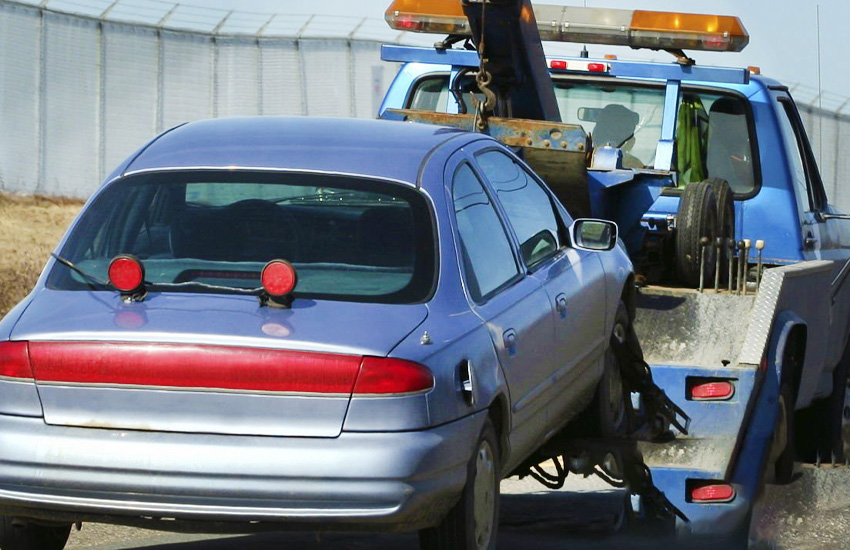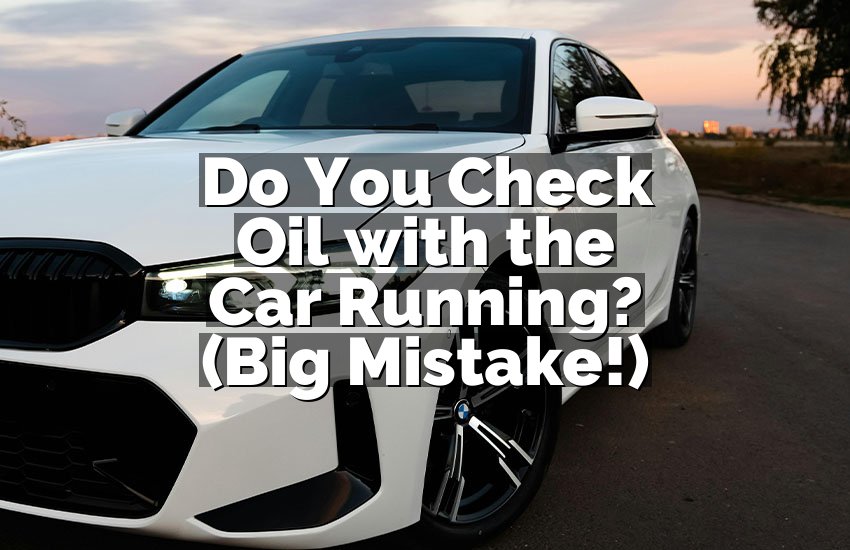Ever wondered what happens when your car gets taken away and you forget about it? Well, let’s talk about it in simple words! Imagine you parked your car somewhere you weren’t supposed to, and it got towed. If you don’t go get it back, a few things could happen.
First off, you might have to pay a fine for leaving your car there. That’s like a big penalty for breaking the rules. Also, the place that towed your car might keep charging you money every day it stays there. So, it’s like your car is on vacation, but you’re paying for it to stay there!
Plus, if you still don’t pick it up, eventually the towing place might sell your car to get their money back. So, it’s really important to go get your car back as soon as possible if it gets towed. Otherwise, it can turn into a big headache and cost you a lot of money.

What to Do When Your Car Gets Towed
When your car gets towed, it can feel scary and confusing. But don’t worry, there are steps you can take to handle the situation. Here’s what you need to do:
Stay Calm and Assess the Situation
Take a deep breath and try to stay calm. Panicking won’t help. Look around to see if there are any signs indicating why your car was towed. It could be because you parked illegally or your car broke down. Understanding why it was towed can help you figure out what to do next.
Contact the Authorities or Towing Company
Once you understand why your car was towed, your next step is to contact the authorities or the towing company. They will be able to give you more information about where your car is and why it was towed. Make sure to ask about any fees or paperwork you’ll need to retrieve your car.
Gather Necessary Documentation
Before heading to the impound lot, gather any documentation you might need. This could include your driver’s license, registration papers, and proof of insurance. Having these documents ready will make the process of retrieving your car smoother and faster.
Arrange Transportation to the Impound Lot
Depending on where your car was towed, you might need to arrange transportation to the impound lot. If you don’t have a ride, consider using public transportation or calling a friend or family member for help. Make sure to bring along any necessary documents and payment for towing and storage fees.
Understand Towing Fees and Fines
Before retrieving your car, it’s important to understand the towing fees and fines you’ll need to pay. These can vary depending on where you live and why your car was towed. Make sure to ask the towing company or authorities about the total cost and any payment options available to you.
Know Your Rights and Responsibilities
As a car owner, you have rights and responsibilities when it comes to towing. It’s important to know what these are so you can protect yourself and your vehicle. Take the time to familiarize yourself with local regulations and laws regarding towing and impoundment.
Act Promptly
Once you’ve gathered all the necessary information and documentation, don’t delay in retrieving your car. The longer you wait, the more you’ll likely have to pay in towing and storage fees. Act promptly to minimize the financial impact of the towing incident.
Learn from the Experience
Finally, take the towing incident as a learning experience. Whether it was due to parking in the wrong spot or neglecting vehicle maintenance, there’s likely something you can do to prevent it from happening again in the future. Learn from your mistakes and take steps to avoid similar situations in the future.
Consequences of Not Retrieving Your Towed Car
When your car gets towed, it’s essential to take action promptly to retrieve it. Ignoring the situation can lead to a range of consequences that can affect you financially, legally, and even impact your ability to drive. Here are the potential consequences of not retrieving your towed car:
Accruing Additional Fees and Penalties
One of the most significant consequences of not retrieving your towed car promptly is the accumulation of additional fees and penalties. Towing companies often charge storage fees for each day your vehicle remains in their impound lot. These fees can add up quickly, turning a relatively minor inconvenience into a significant financial burden.
Storage Fees
Storage fees vary depending on the towing company and the duration your car remains in their impound lot. These fees can range from a few dollars per day to upwards of a hundred dollars or more. The longer you wait to retrieve your car, the more you’ll have to pay in storage fees, further increasing the overall cost of the towing incident.
Administrative Charges
In addition to storage fees, you may also incur administrative charges for processing paperwork and managing your vehicle while it’s in the impound lot. These charges can include administrative fees for releasing your car, processing payment, and any other administrative tasks associated with the towing process. Like storage fees, administrative charges can quickly escalate if you delay retrieving your vehicle.
Potential Legal Action
Continuously ignoring the situation and failing to retrieve your towed car can result in legal action being taken against you. Towing companies have the right to pursue legal action to recover the costs associated with towing and storing your vehicle. This could include filing a lawsuit against you to collect unpaid fees and penalties, potentially leading to further financial consequences and legal trouble.
Risks to the Vehicle’s Condition
Leaving your car in a tow lot for an extended period can also pose risks to its condition. Impound lots are often exposed to the elements, leaving your vehicle vulnerable to damage from weather conditions such as rain, snow, and extreme temperatures. Additionally, your car could be at risk of vandalism or theft while it’s in the impound lot, further compromising its condition and potentially increasing repair costs.
Exposure to Weather and Vandalism
Your car sitting in an impound lot for an extended period means it’s exposed to whatever weather conditions come its way. Rain, snow, heat, or cold can all affect your vehicle, potentially leading to damage such as rust, corrosion, or electrical issues. Furthermore, impound lots may not always be secure, increasing the risk of vandalism or theft.
Possibility of Damage During Storage
In addition to external factors like weather and vandalism, there’s also the risk of damage occurring to your car while it’s in storage. Vehicles in impound lots are often moved around to make space for incoming cars, increasing the likelihood of scratches, dents, or other forms of damage. While towing companies strive to take precautions to prevent damage, accidents can still happen, especially if your car remains in storage for an extended period.
Implications for Your Driving Record and Insurance
Ignoring a towed car can also have implications for your driving record and insurance. If your car was towed due to parking violations or other infractions, failing to address the situation promptly could result in fines or penalties being added to your driving record. These infractions could lead to increased insurance premiums or even license suspension or revocation in severe cases.
Impact on Insurance Premiums
Having infractions on your driving record, such as parking violations or unpaid fines related to a towed car, can lead to higher insurance premiums. Insurance companies may view you as a higher risk driver and adjust your premiums accordingly. The longer you delay in resolving the towing incident, the more significant the impact on your insurance premiums could be.
Potential License Suspension or Revocation
In extreme cases, repeatedly ignoring towing incidents or failing to address outstanding fines and penalties could result in your driver’s license being suspended or revoked. Driving with a suspended or revoked license can lead to further legal trouble and increased consequences if caught by law enforcement. It’s essential to take towing incidents seriously and address them promptly to avoid jeopardizing your driving privileges.
Not retrieving your towed car can have significant consequences that go beyond the initial inconvenience of being towed. From accruing additional fees and penalties to risking damage to your vehicle and facing legal action, ignoring the situation can lead to a range of financial, legal, and personal repercussions. It’s crucial to act promptly to retrieve your towed car and address any outstanding issues to avoid these consequences and protect yourself and your vehicle.
Tips for Preventing Your Car from Getting Towed
Getting your car towed can be a frustrating experience, but there are steps you can take to reduce the chances of it happening. By following these simple tips, you can help ensure that your vehicle stays where it belongs and avoid the hassle and expense of dealing with a towed car.
Park Responsibly and Legally
One of the most effective ways to prevent your car from getting towed is to park responsibly and legally. Always make sure to park in designated parking spots and obey any posted signs or regulations. Avoid parking in areas where parking is prohibited or restricted, such as in front of fire hydrants, in handicap spots without a permit, or in loading zones during restricted hours.
Stay Informed About Local Parking Regulations
Different cities and neighborhoods may have their own parking regulations and restrictions, so it’s essential to stay informed about the rules in your area. Pay attention to street signs, parking meters, and any other indicators of parking restrictions when choosing where to park your car. Familiarize yourself with local parking ordinances and regulations to avoid unintentional violations.
Properly Maintain Your Vehicle
Regular vehicle maintenance can help prevent breakdowns and mechanical issues that could lead to your car being towed. Make sure to keep up with scheduled maintenance tasks such as oil changes, tire rotations, and brake inspections. Address any warning signs or issues with your vehicle promptly to prevent unexpected breakdowns that could leave your car stranded and subject to towing.
Use Parking Apps and Services
Technology can be a helpful tool in avoiding parking tickets and towed cars. Consider using parking apps or services that provide real-time information about available parking spots, parking regulations, and parking enforcement in your area. These apps can help you find legal parking spots quickly and easily, reducing the risk of getting towed.
Be Mindful of Temporary Parking Restrictions
Pay attention to temporary parking restrictions and events in your area that may affect where you can park your car. These can include street cleaning days, special events, and construction projects. Make sure to move your car before temporary restrictions go into effect to avoid getting towed or receiving parking tickets.
Plan Ahead When Parking Overnight
If you need to park your car overnight, make sure to plan ahead and choose a safe and legal parking spot. Avoid parking in areas with overnight parking restrictions or in locations where your car may be at risk of being towed, such as private lots or unauthorized parking areas. If you’re unsure about where to park overnight, consider using a secure parking garage or lot.
By following these simple tips, you can reduce the risk of your car getting towed and avoid the inconvenience and expense that comes with it. Remember to park responsibly, stay informed about local parking regulations, maintain your vehicle, and use technology to your advantage.
Conclusion
It’s crucial to promptly retrieve your towed car to avoid escalating costs and potential auctioning. Failing to do so can lead to financial strain and legal consequences. Stay informed about your rights and responsibilities to prevent unnecessary stress and expenses.
Taking prompt action can save you from a lot of trouble.


